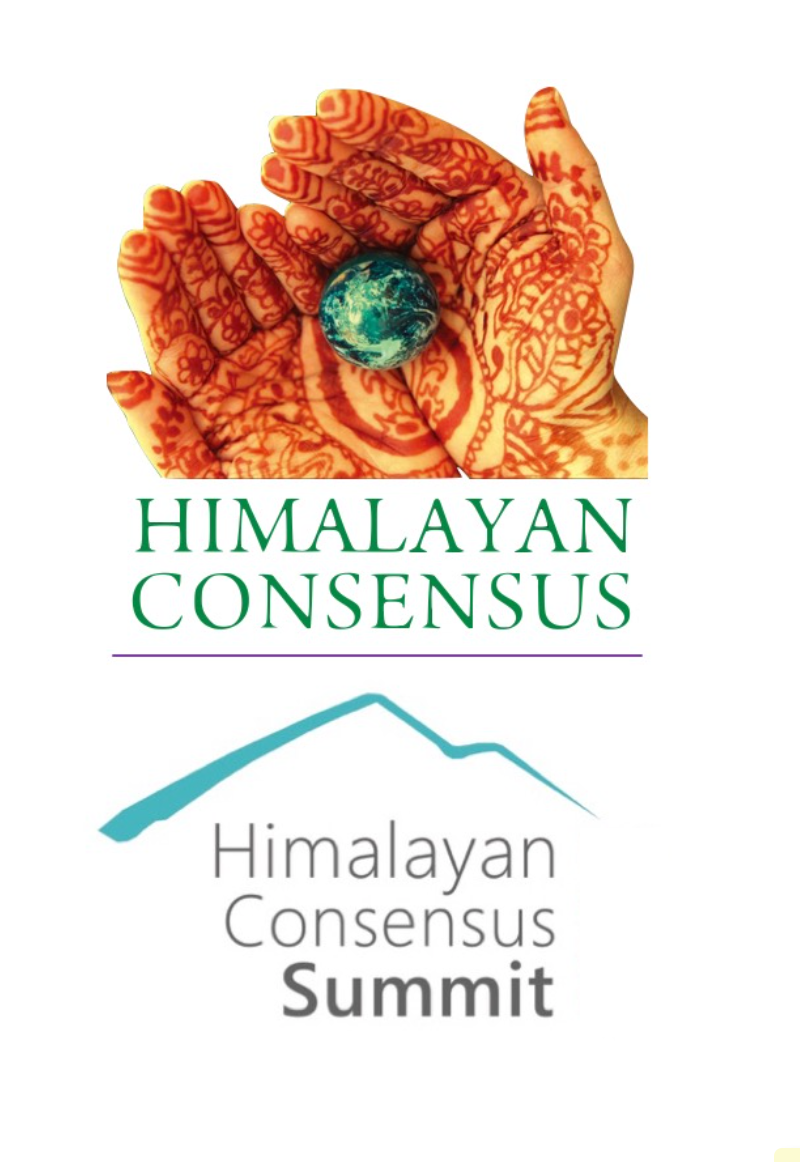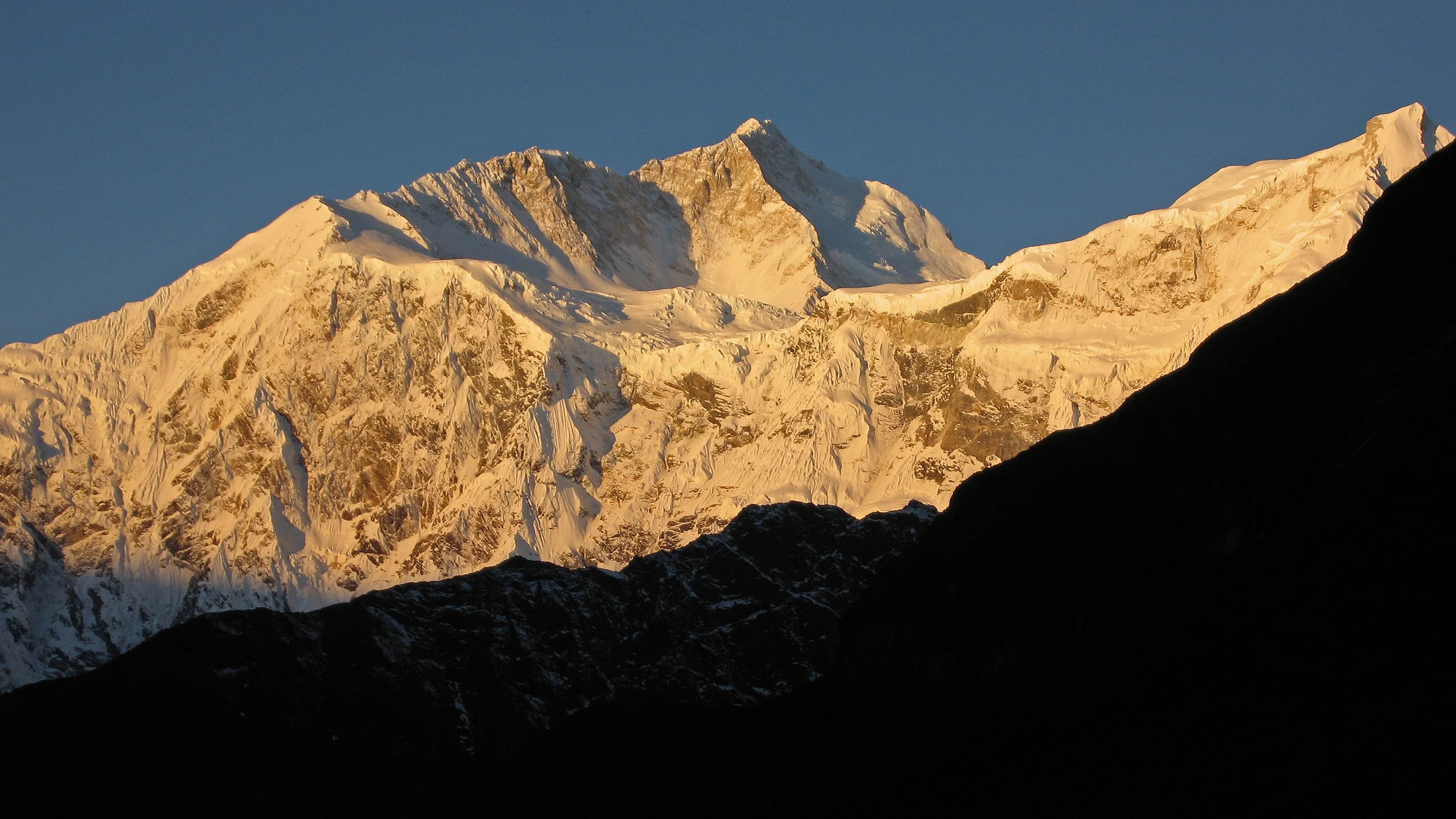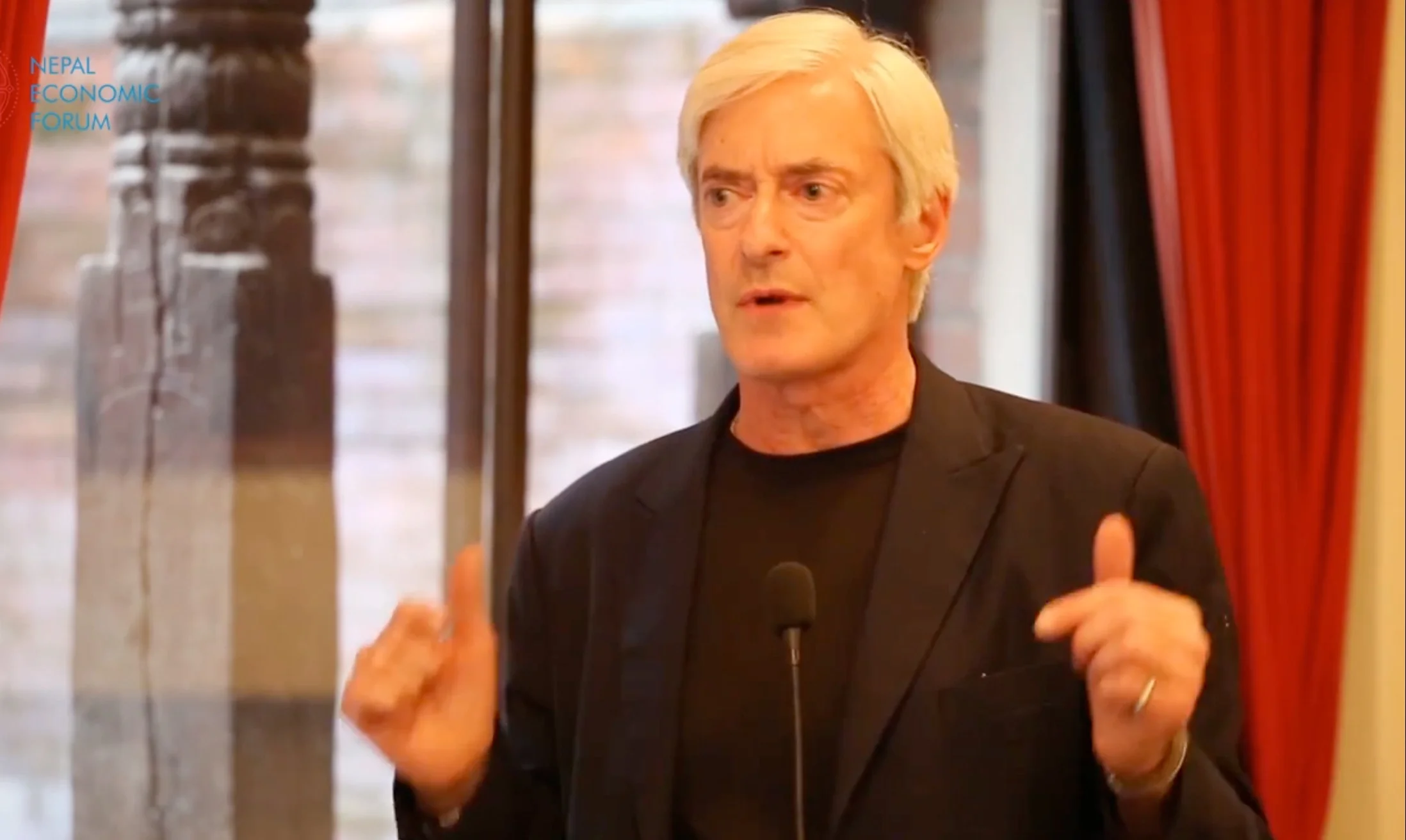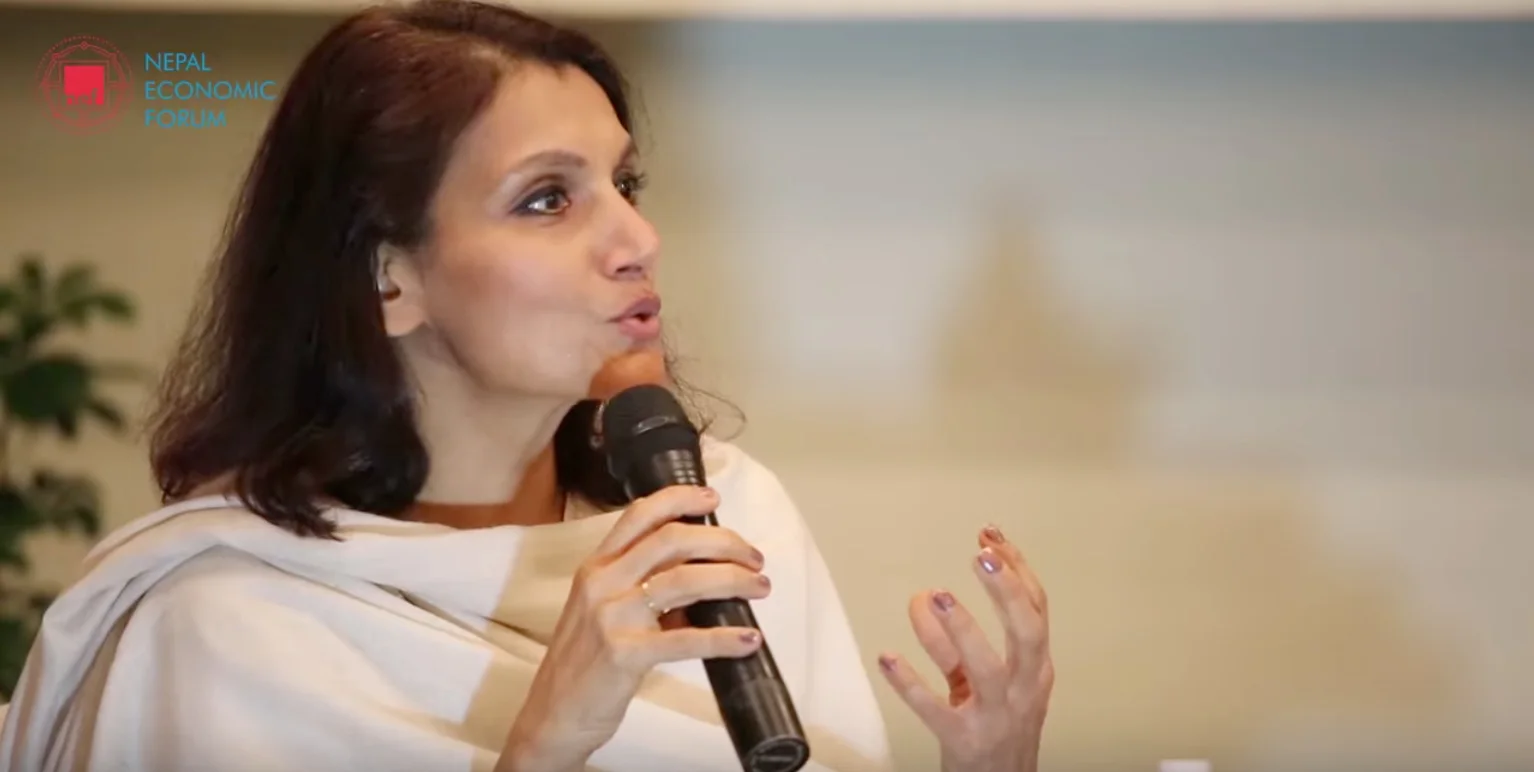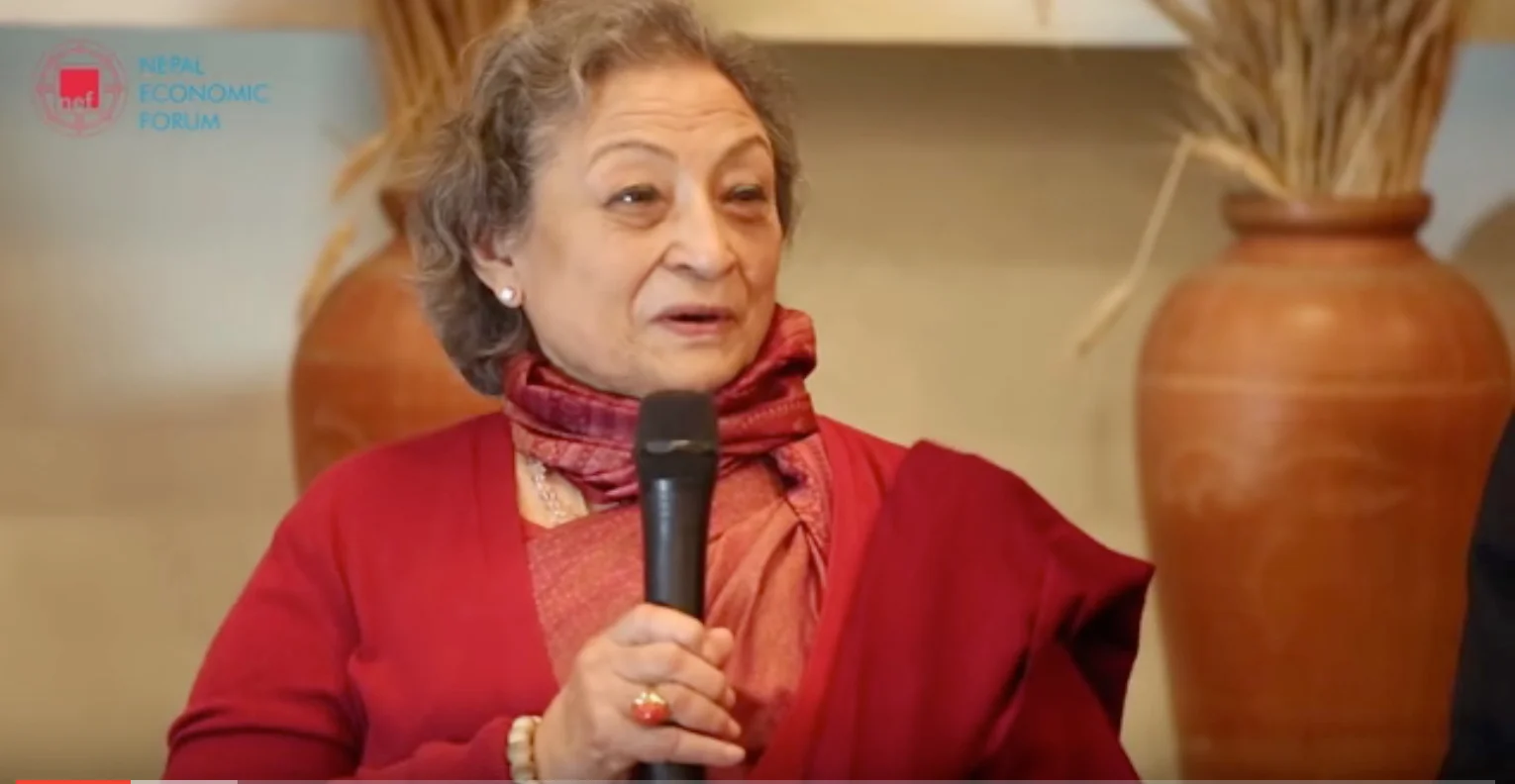HIMALAYAN CONSENSUS PRINCIPLES
Himalayan Consensus is built upon the three principles of:
1. Protecting ethnic diversity and indigenous identity,
2. Through sustainable economic programs or socially-responsible businesses,
3. Which prioritize environmental protection and community development.
Himalayan Consensus is drawn from collective experiences across the Himalayan region (such as Bhutan's concept of Gross National Happiness to Bangladesh's micro-finance) where local knowledge has proved successful in creating pragmatic solutions to development challenges.
Himalayan Consensus is flexible in its approach, basing solutions on local conditions, and in this respect entirely applicable in other regions of the world facing challenges of poverty alleviation, ethnic minority marginalization, and environmental desecration.
The Himalayan Consensus was first articulated in a series of articles written by founder Laurence Brahm in his column "Himalayan Consensus" that appeared in the monthly publication Asia Review. He further expressed the Himalayan Consensus concept in articles that appeared in CSIS Pacnet and his books "The Anti-Globalization Breakfast Club" and "FUSION ECONOMICS: How Pragmatism is Changing the World."
The himalayan consensus process:
The Himalayan Consensus Process provides ongoing dialogue involving civil society-grass roots and environmental organizations together with business, finance and government to address the challenges of climate disruption in our region.
The Himalayan Consensus Process views grass roots civil society as the innovators and environmental scientists as the research and development source, in seeking solutions that can be pragmatically scaled by business and finance working together.
The Process is a multilateral and multi-stakeholder dialogue convened through workshops, conferences and an annual forum -- the Himalayan Consensus Summit.
The outcomes are pragmatic policy proposals that may be adopted by governments in the region. A core Himalayan Consensus principle is to build policy solutions based on pragmatic experience in the region and not theory or economic ideology.
The Himalayan Consensus Process offers a unique second track dialogue that seeks to prevent conflict and violence that can arise from climate change disruption and its effect on resources and communities.
Himalayan Consensus Advisory Role:
Representatives of the Himalayan Consensus have been serving as advisers to China's Ministry of Environment Protection in drafting a "green print" to formulate specific policy recommendations to implement China's concept of "ecological civilization."
Himalayan Consensus advisers are engaged by Bhutan's National Environmental Commission on water, waste and environmental policies and the drafting of relevant regulations.
Himalayan Consensus is an inception member of the Himalaya - Third Pole Circle convened by Iceland's President Olafur Ragnar Grimsson and hosted by Bhutan's Prime Minister Tshering Tobgay.
Himalayan Consensus is a policy member of the Hindu Kush Himalaya Assessment Mapping Program convened by ICIMOD.
China's National Development and Reform Commission Climate Change Negotiating Division has sought Himalayan Consensus inputs for the upcoming Climate Change Summit in Paris 2015.
Himalayan Consensus was invited by the UN Earth Summit 2012 "Rio+20" as NGO Observer in plenary sessions and Himalayan Consensus founder was selected by ScenaRio as one of the "100 World Opinion Leaders Advising Rio+20."
At the UNFCC Cop 17 in 2011, Himalayan Consensus with sister organization African Consensus convened a formal side vent at which chief negotiators from China, India, Brazil, Singapore and Africa presented actionable measures for mitigation and reduction of carbon that would be taken by each nation in view of the failure to reach an overarching agreement at COP 17 and endorsed a Global Consensus on Climate Change statement drafted by Himalayan Consensus.
In 2008 UN Secretary General Pan Ki-Moon personally visited Himalayan Consensus Beijing office and founder coinciding with UN invitation for Himalayan Consensus to join the UN Theme Group on Poverty and Inequality as member.
Himalayan Consensus Sources
The Himalayan Consensus as a process began with the issuing of the Himalayan Consensus Declaration on the eve of the South Asian Association for Regional Cooperation (SAARC) heads of state meeting in Kathmandu, Nepal, in November 2014. The document establishes the key principles of Himalayan Consensus as ideals that should be aspired to by SAARC nations and China (a SAARC observer state) and absorbed into their multilateral processes in protecting the glacial-water systems, community and ecological integrity of our region.
The Himalayan Consensus as a concept was first articulated in a series of articles written by founder Laurence Brahm in Asia Review Magazine in 2007 under the column “Himalayan Consensus”. They were further articulated in a CSIS Pacnet commentary warning of the importance of the Himalayan region in terms of water and food security for one third of humanity.
The Summit
Himalayan Consensus Summit (HCS) is a multi-stakeholder event involving member of the civil society, business and finance, and government. The agenda of the HCS program will be designed around creating sustainable alternative solutions to many grassroot and alternative efforts that are being developed. The entire focus of the Himalayan Consensus Summit is to matrix the small and demonstrate that local solutions are more sustainable. The process is connecting the dots and showing that the alternative can become the new mainstream.
Himalayan Consensus Summit will convene multi-stakeholders from a spectrum of community, business, finance, civil society and government in Kathmandu, Nepal, March 2016. The Summit will develop a consensus of vision and action between these stakeholders toward addressing issues of climate change that affects all nations sharing the fragile bio-diversity zone of the Himalayas.
The format will be panel discussions profiling individual success cases, practical experiences with inputs from business and finance leaders to articulate a pragmatic roadmap for addressing issues of glacial melt affecting downstream communities. Forty percent of our planet's population depends on the glacial and river eco-system of this region for its water.
Panels will cover key inter-related topics of: Renewable Energy, Water and Food Security, Community Empowerment, Inclusive Finance, Holistic Health, and Crisis Prevention.
Views will be synthesized into an integrated environmentally enhancing economic development model -- the Hindu Kush Himalayan Assessment -- and presented as an outcome paper at the UNFCC when it meets in Paris this autumn. Participants will be advisors to that outcome. The outcome document will serve as pragmatic policy recommendations for decision makers in the region in an effort to bring about positive transformation.
The Himalayan Consensus Summit will emphasize locally inspired solutions with global relevance and applicability. This differs significantly from top-down theoretical approaches that have consistently proven to be insensitive to regional conditions and ineffectual in achieving desired results, as often promoted by multi-lateral institutions and business forums.
HCI and NEF jointly hosted a program in Kathmandu in November 2014 coinciding with the SAARC Summit, serving both as a curtain raiser event for the Himalayan Consensus Summit as well as providing a declaration for the SAARC Summit.
What is Himalayan Consensus?
Himalayan Consensus is a holistic economic development paradigm that emphasizes the integrity of planetary eco-systems as an indispensable basis for socio-economic development.
It applies Himalayan traditions towards contemporary challenges and priorities and harmonizes the concerns of human communities, commercial enterprises, and the natural environment.
What does Himalayan Consensus Institute (HCI) Do?
HCI promotes grass roots innovation to evolve the social enterprise concept into fresh models for community empowerment, addressing challenges of climate change across the Himalayan region. Areas of focus include: renewable and efficient energy, organic agriculture, water conservation, inclusive finance, and prevention of conflict. Key themes include: empowerment of identity through heritage and artisan protection, and the closing of income gaps through economic empowerment of communities.
The Himalayan Consensus process involves convening an annual conference that will bring together both grass roots and NGO pioneers of social enterprise across the region, together with business and financial leaders, in seeking pragmatic ways to scale local solutions. Throughout the year the Himalayan Consensus Institute will matrix outcomes from the conference together with examples of social enterprise innovation across the Himalayan region, evolving these into a fresh economic paradigm, and promoting it through social media networking.
What is Nepal Economic Forum and What Does it Do?
Nepal Economic Forum (NEF), incorporated as a not-for-profit in 2008, is evolving to be Nepal’s premier private sector led economic policy and research institution. Led by beed management private limited (beed), a management consulting and advisory services firm, NEF strives to re-define the economic development discourse in Nepal, and works towards strengthening the Nepali economy through various activities that promote the growth of an efficient and inclusive private sector. In its quest to mainstream the discourse on the Nepali economy; which has not gotten the necessary space it deserves, NEF has worked in partnership with many domestic and international institutions.
NEF is led by Chair Sujeev Shakya (www.sujeevshakya.com), a Thought Leader who continues to integrate business, management, economy and leadership to positively transform individuals and organizations.
Who will organize?
NEF will host the Summit Secretariat and organize the event. NEF has been successfully hosting events for its own organization and external institutions. NEF hosted the first International Literary Festival ‘Kathmandu Literary Jatra’ in Kathmandu, Nepal and along with Chatham House, UK will be organizing an economic conclave in the near future.
Himalayan Consensus Fund for Heritage and Ecological Integrity
The Himalayan Consensus Institute manages select funds for the purpose of supporting projects involving heritage restoration, cultural preservation, ecological rehabilitation, rural and nomadic health care and education.
“Initiating and sustaining dialogue and collaboration on the challenges of climate change was at the heart of the second Himalaya-Third Pole Circle meeting held in Thimphu, Bhutan, on 5 and 6 February 2015.
Her Royal Highness Princess Dechen Yangzom Wangchuck, Her Royal Highness Princess Kezang Choden Wangchuck, Prime Minister Lyonchnen Tshering Tobgay of Bhutan, and President Ólafur Ragnar Grímsson of Iceland graced the inauguration of the two-day meeting.
Delivering his keynote address, Lyonchhen Tshering Tobgay said people in the mountains face various challenges of increasing population, poverty, and climate change. Other challenges included deforestation, pollution, desertification, and habitat loss. “We have to work together because ‘thinking globally, acting locally’ isn’t enough. We have to think globally and act regionally,” he said.
President Ólafur Ragnar Grímsson said his commitment to the Himalaya-Third Pole process is inspired by the belief that coming together can help in learning from each other. He said there is mounting evidence of how the retreating glaciers will impact the rivers and water systems in the Himalayan countries directing attention to dramatic consequences for food and energy production, security and international relations”
Picture below is with David Molden, Executive Director of ICIMOD who is leading the science research on glacial melting and the President of Iceland.
